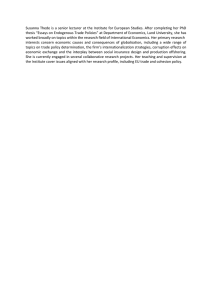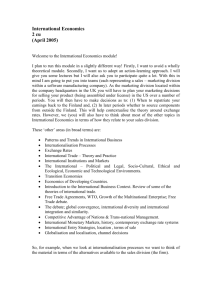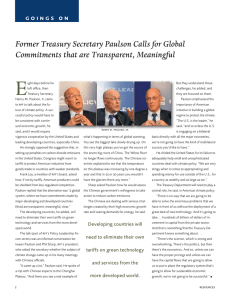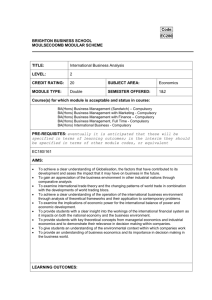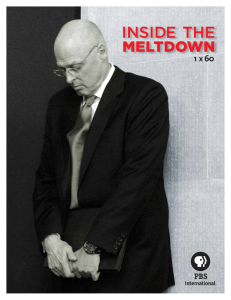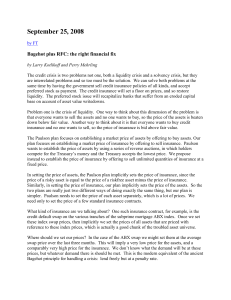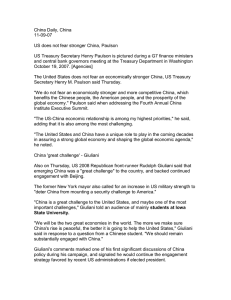Economic Growth: In spite of the short-term variations of
advertisement
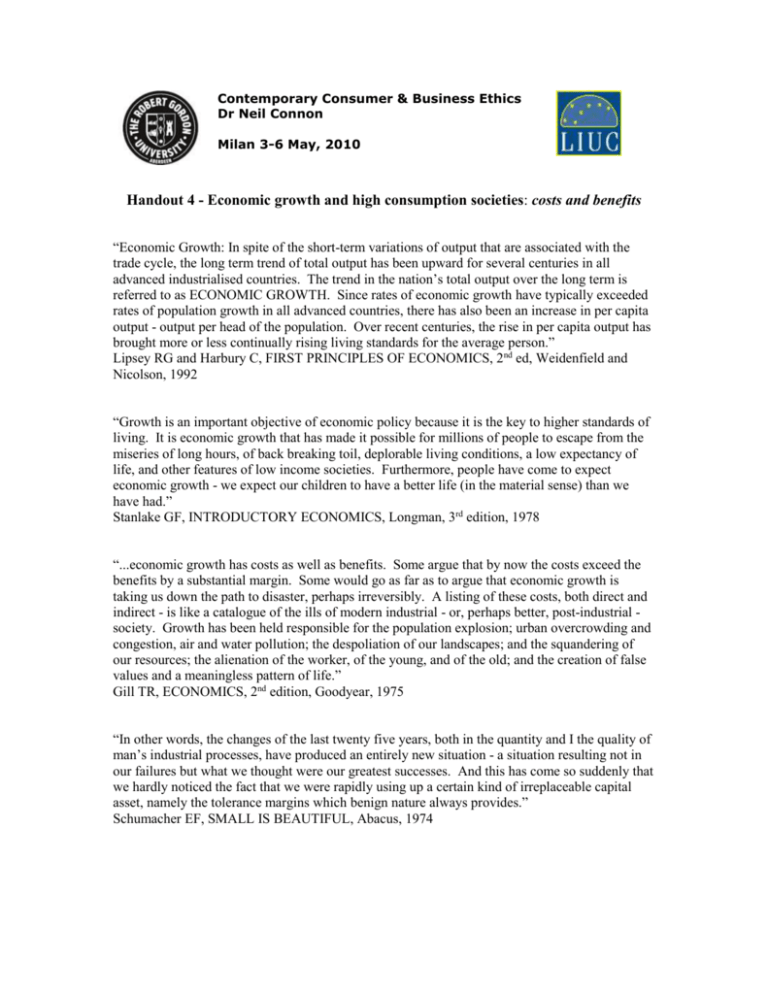
Contemporary Consumer & Business Ethics Dr Neil Connon Milan 3-6 May, 2010 Handout 4 - Economic growth and high consumption societies: costs and benefits “Economic Growth: In spite of the short-term variations of output that are associated with the trade cycle, the long term trend of total output has been upward for several centuries in all advanced industrialised countries. The trend in the nation’s total output over the long term is referred to as ECONOMIC GROWTH. Since rates of economic growth have typically exceeded rates of population growth in all advanced countries, there has also been an increase in per capita output - output per head of the population. Over recent centuries, the rise in per capita output has brought more or less continually rising living standards for the average person.” Lipsey RG and Harbury C, FIRST PRINCIPLES OF ECONOMICS, 2nd ed, Weidenfield and Nicolson, 1992 “Growth is an important objective of economic policy because it is the key to higher standards of living. It is economic growth that has made it possible for millions of people to escape from the miseries of long hours, of back breaking toil, deplorable living conditions, a low expectancy of life, and other features of low income societies. Furthermore, people have come to expect economic growth - we expect our children to have a better life (in the material sense) than we have had.” Stanlake GF, INTRODUCTORY ECONOMICS, Longman, 3rd edition, 1978 “...economic growth has costs as well as benefits. Some argue that by now the costs exceed the benefits by a substantial margin. Some would go as far as to argue that economic growth is taking us down the path to disaster, perhaps irreversibly. A listing of these costs, both direct and indirect - is like a catalogue of the ills of modern industrial - or, perhaps better, post-industrial society. Growth has been held responsible for the population explosion; urban overcrowding and congestion, air and water pollution; the despoliation of our landscapes; and the squandering of our resources; the alienation of the worker, of the young, and of the old; and the creation of false values and a meaningless pattern of life.” Gill TR, ECONOMICS, 2nd edition, Goodyear, 1975 “In other words, the changes of the last twenty five years, both in the quantity and I the quality of man’s industrial processes, have produced an entirely new situation - a situation resulting not in our failures but what we thought were our greatest successes. And this has come so suddenly that we hardly noticed the fact that we were rapidly using up a certain kind of irreplaceable capital asset, namely the tolerance margins which benign nature always provides.” Schumacher EF, SMALL IS BEAUTIFUL, Abacus, 1974 “In the early 1990’s we must aim to get it firmly established in the public mind that the present path of economic development is leading the world to catastrophe, and that this is directly connected with the underlying assumptions and imperatives of conventional economics. We must get it widely accepted that a change of direction is both necessary and possible, to a new path of economic development for the twenty-first century. ...In brief: it should be systematically enabling for people it should be systematically conserving of resources and environment it should treat the world’s economy as a multi-level one-world system, with autonomous but interdependent parts of all levels; it should be supported by up to date economic ideas.” Robertson, J, FUTURE WEALTH, Cassell, 1990 “What is happening in our mature society is much more fundamental, confusing and distressing than I had expected. It is that confusion which I am addressing in this book. Part of the confusion stems from our pursuit of efficiency and economic growth, in the conviction that these are the necessary ingredients of progress. In the pursuit of these goals we can be tempted to forget that it is we, we individual men and women, who should be the measure of all things, not made to measure for something else. It is easy to lose ourselves in efficiency, to treat that efficiency as an end in itself and not a means to other ends.” Handy C, THE EMPTY RAINCOAT, Hutchinson, 1994 “…as chairman of Goldman Sachs in 2001, Hank Paulson talked of ‘the gospel of globalisation’ in praising the increasing interconnected world economy and its benefits for economic growth, global welfare, democracy, and world peace (Paulson, 2001). However, Paulson also had the pleasure of witnessing the more ambiguous ‘blessings’ of globalisation in his role as US treasury Secretary in 2008, when he was in charge of taming the disastrous effects of the global financial crisis on the US economy.” Crane and Matten, BUSINESS ETHICS, 2010
